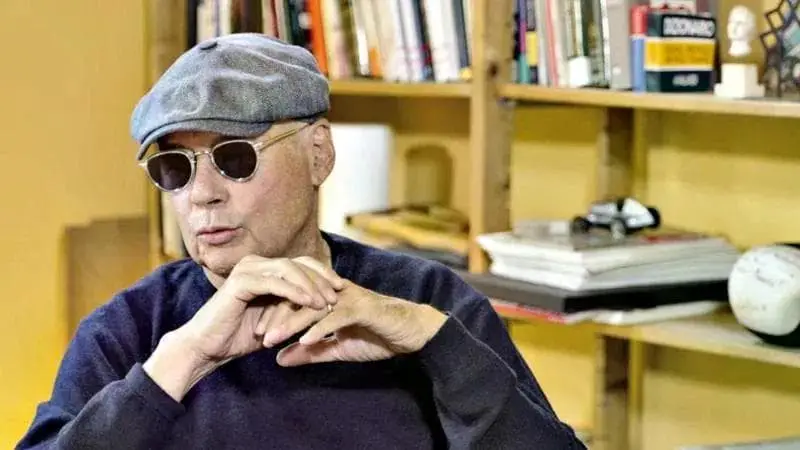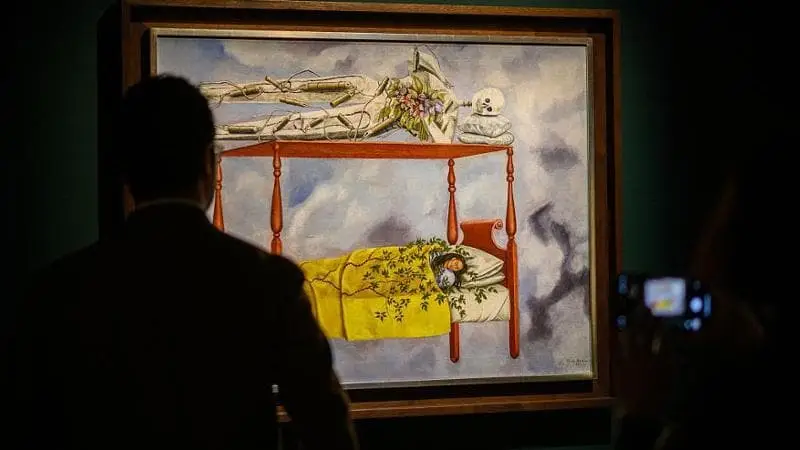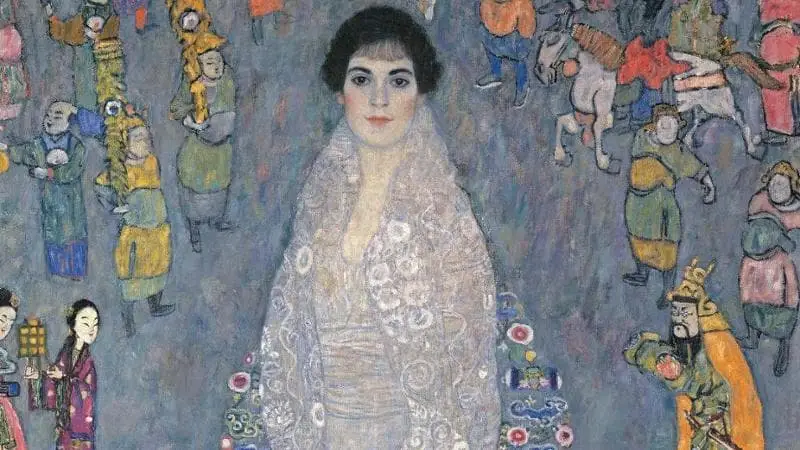Alessandro Baricco: “Young people are bidding farewell to the twentieth century in the protest-filled squares for Gaza”
This text was published by the author on Substack – VERSIONE IN ITALIANO
It’s hard to pinpoint exactly when it happened, but recently, one day, Gaza ceased to be the name of a land and became the definition of a limit: the red line many of us believe must not be crossed. Since that day, fighting on Gaza’s side is no longer a political choice to be legitimised or discussed.
It has became a mental shift where one kind of humanity distances itself from another, asserting its own idea of History and reclaiming the world from those who are stealing it from them.
Nothing matters anymore—one’s beliefs about the Hamas-Israel conflict, or prejudices about Jews or terrorism: they disappeared like the fire of a candle in a burning house when Gaza became much more than a geopolitical situation to take a position on: today it represents a way of being in the world.
It seems to me the first to understand it were young people between fifteen and twenty-five years of age. It was strange to see them waving Palestinian flags, suddenly awakened from their political hibernation. I mean, these are kids with whom it was hard to talk about Salvini, Meloni, even Trump. They didn’t appear interested. Climate change and gender identity—that’s what they were passionate about. Then, one day, you see them in the streets, just a few of them, holding a flag of a distant land they know almost nothing about. And now, when hundreds of thousands of people, across the world, are out in the streets with that flag, one has to admit those young people were a little ahead of everyone: now it’s really very important to understand in what way they anticipated the rest, and what conceptual leap they made with a speed no one else has been capable of.
2. There is a fault line, and we live right above it. On one side is the emerged land of the Twentieth Century, with its values, its principles, and its tragic history. And on the other there’s a continent, still often submerged, breaking off from the Twentieth Century, driven by the digital revolution, motivated by disdain for past horrors, and led by a new kind of intelligence. Where the fracture takes place, the earth shakes. The Twentieth Century does not give way, and the new continent keeps tearing away. I have few doubts about how it will end: the Twentieth Century will drift away, a nearly uninhabited land, destined to be studied in books and museums.
In the past few months, however, we have been forced to remember an uncomfortable truth, one we might have suppressed: the most dangerous animal is a dying one. Once agonizing, the Twentieth Century abandoned the dignified resistance it had firmly manifested and, sensing its own end, started delivering violent blows, and became extremely aggressive. It did so by re-adopting one of its strongest identity traits: the belief that war is a solution, and that the suffering of civilians is an acceptable price to fuel the conflict among elites. Both the Russian aggressive invasion of Ukraine and the war between Hamas and Israel are deeply rooted in the Twentieth Century. One can still feel the shockwave of phenomena like Imperialism and Colonialism, the hallmark of the late 19th–20th century thought. One can easily see it reflects unresolved issues of World War II or the Cold War. And it opens up the catalogue of products the Twentieth Century has been using for a long time to sell itself: the cult of borders, the centrality of arms and armies, the religion of nationalism. It’s all one package: the dying animal’s last throes. The long wave of a disaster.
In the face of all this, at first it was difficult to understand. They looked like seismic tremors, adjustments of the ground. That was the time to take sides, or draw the line between good and evil. We did it, each according to our convictions. Then Gaza came. And then, instinctively, we felt that, indeed, there was only one line, the one indicated by the fault line on which we teeter. A dying world on one side, a new continent on the other. It seemed urgent to say which side one took. And Gaza helped us do that, because it is a scorching, crystal-clear synthesis of a huge split — it is where an entire earthquake takes place once, in one spot, in one moment.
In choosing where to stand, many sided with the continent that is breaking off. I would like to clarify one more time a concept I feel is precious. Nothing guarantees us the civilization we are building will, in the end, be better than the one that came before it—but we can certainly say that it was created to dismantle the paradigms that enabled the disasters of the Twentieth Century (I want to remember two world wars, extermination camps, the atomic bomb, the Cold War, the golden age of totalitarianism). Regardless of what one may think of the so-called digital revolution, it would be foolish not to admit that, wittingly or not, it blew apart the structural and cultural bunkers on which the Twentieth Century had built its disasters: with the digital we have chosen a much more fluid and transparent world, in which walls and borders lose their solidity; we have accepted the risk of unleashing all information and opinions, allowing them to circulate almost without restraint; and we have accelerated everything, effectively creating a playing field in constant flux, preventing ideas from ossifying or turning into myths; we have made it extremely difficult to create protected pockets where History can unfold away from prying eyes; and we have made it more difficult for any elite to exercise dominance. None of these moves is free from the risk of dramatic side–effects: but if we have made them it is for a reason we must never lose sight of: it seemed crucial to live differently, so as not to die in the same way as our parents.
It was clear to us that the heart of the matter was precisely where war, violence, and weapons formed a primitive whirlpool of which we wanted to erase every trace. If there ever were a traumatic yet definitive way of reminding us of all this, it is Gaza. It reminded many of us that we are already living in a different world — with our minds, with our daily gestures — a different world where Gaza is not possible. What’s more: we are not willing to accept that the dying animal is once again placed at the centre of the chessboard, dragging us backward, and holding our vision hostage. Beyond the instinctive and painful pietas Gaza inspires, the real insult is feeling that we are being robbed — with violence, arrogance, and ferocity — of something too precious: the future we want. Who could understand it better than kids?
5. In a street protest motivations and resentments of every kind spill over, of course. But I remain convinced that the main driving force behind the solidarity with Gaza lies in a precise choice of vision in this story of two civilizations in conflict, a conflict that Gaza makes starkly visible. I also realize it is not the majority of people, however surprisingly large it may be. But here another phenomenon comes into play – one that surprised me and I had only partially foreseen: the tremendous resistance of the Twentieth Century. If I try to explain it, this comes to mind: there is a huge part of the economic, political, intellectual, and social fabric that knew how to play the game of the Twentieth Century but does not yet know how to play that of the new civilization. And so it hides in the folds of the dying animal. Here’s a very practical example: many people know how to make money in the habitat of the Twentieth Century but don’t know how to do so in the digital civilization.
An easy example: the media. The big traditional media of the past, I mean. Print newspapers, for one, are another dying animal (I say this with sadness). The ease with which they often fan the winds of war betrays an instinct to take refuge in the tones and ideas that once guaranteed them a degree of centrality, and thus, reliable profits. Understandable, but extremely dangerous. No less transparent is the voluptuousness with which entire intellectual elites — for whom clarity should be a duty — are seduced and hypnotized by the dying animal and place it back at the centre of the game. They appear unable to articulate visions – or even analyses – that are applicable to the map of the new world: they keep playing sophisticated matches on a chessboard they should be the first to destroy. They do so with a voluptuous tendency toward self?destruction. It is a painful phenomenon. In fact, civilization conflicts are largely decided by capacity of the power of narrative – by how effectively some are able to transform cloudy facts into a compelling story, and thus into reality. That so many talented storytellers are working in these hours to breathe life into an exhausted narrative like that of the Twentieth Century — and its desolate warlike epic — is something that drives one to very harsh reactions.
6. If things are even remotely as I’ve tried to describe them, it is obvious that, at this historic moment, Europe plays a fundamental role. It’s true that our continent is very old and therefore weighed now by nostalgia. But it’s also true that we are the Twentieth Century and therefore no one knows it better than we do: where the Twentieth Century was a tragedy, and where it was a wonder, we were there – more than anyone else. We know exactly where lie the traps, the mistakes, and the tricks. It only takes a little clarity to see how the dying animal works, hence there’s no reason why we should be afraid of it: there is one thing we should and can do: finish it. I want to be clear: this does not mean blindly embracing the digital civilization, it means using it to avoid making the same mistakes again. But it’s not what we are doing. Hearing talk of rearmament from the continent’s most prominent minds is shameful and intellectually baffling. Having to endure the virile rhetoric used to vow the defence of every single meter of our beloved European land is unacceptable. Instead, we ought to say, with greater gentleness, that we will defend every single inch of the civilization we are imagining, and we will not do so with weapons, but with the patient obstinacy with which an animal searches for water, and rivers make for the sea.
7. Someone might say: there’s also Trump, and especially Trump?America. Fair enough. But here, I must be honest, I can’t understand very much, I’m missing the information to do so. I believe one should live in the United States for a long time, at this time, to understand. From afar I only perceive the urgency of not mistaking Trumpism — just like some European populisms — for yet another lash of the dying animal. It’s not that simple. There are different currents at play and they are difficult to analyse. Certainly there is an instinctive regression to Twentieth?Century thought patterns – crude, perhaps, but useful at times of confusion. A striking example is the resurgence of the cult of walls and borders. This regression, however, does not occur in its pure form, as it might have in the Twentieth Century; instead, it moves constantly diluted in elements that seem to stem from a chemistry typical of the new civilization: suspicion of elites, mass individualism, even a certain inclination to interpret reality through the formal frameworks of play – shifting the centre of gravity of things to a vaguely playful surface and distrusting depth as a valid key to understand reality. This composition is undoubtedly hard to digest, given its tendency to veer towards the vulgar, the insolent, the adolescent, and the downright idiotic. But revolutions, by their very nature, unleash spectacular counter?movements, the design of which often eludes our control. Consider the French Revolution of 1789 — a revolution that changed half the world only to rebound in a grandiose acrobatic display of splendid vulgarity perfectly captured in Ingres’s portrait of Napoleon the Emperor. It’s worth checking it out.
Seventeen years passed between the storming of the Bastille and that painting – the same span of time that passed between the introduction of the first iPhone and Trump’s victory in the 2024 presidential election. (Yes, I realise this comparison would flatter old Donald. I apologise. But it gets the idea across).
If you like this text, share it. If you really love it, translate it—before AI does —and help it spread. Thank you.
(Translation by Barbara Bacci)
Alessandro Baricco is an Italian writer, director and performer. His novels have been translated into a number of languages (english version: “Silk”, “Ocean Sea”, “An Iliad” and “Without Blood”, Canongate Books)
Condividi questo contenuto:





